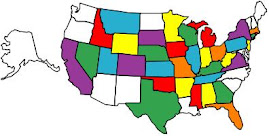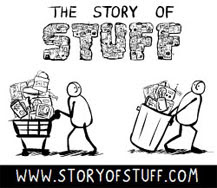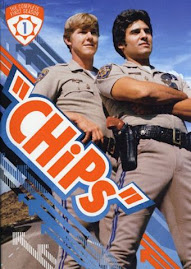Well it is officially over. I finally finished all 1146 pages of War and Peace. If you've been reading this blog for a while you know why I read it...to counteract the effects of "mommy brain". I think it really accomplished my goal. I enjoyed the book a lot and would recommend it to anyone who has three months to devote to reading one book. Actually, now that it is over I kind of miss it. In those times during the day when I just have to sit down for a few minutes because my back is hurting I automatically think, "I'll just read a little and see what Natasha and Marya are doing", but they are finished doing everything Tolstoy had for them to do so they have gone. It isn't like I don't have any other books to read. I've had two in queue for a month or more now. But there is still so much to digest and think about from War and Peace that I don't want to cloud my mind with other story lines just yet.
I had heard that War and Peace really wasn't a novel in the strictest sense but I didn't really understand what that meant. After reading it I can see that while there are fictional characters with typical struggles involving life, love, and loss, the book is also a history of Russia, particularly the period from 1799 to 1813. On top of that Tolstoy also uses his book to expound on his views of historians and their continual misrepresentation of actual fact based on their biased presuppositions. For example he says,
" The combination of causes of phenomena is beyond the grasp of the human intellect. But the impulse to seek causes is innate in the soul of man. And the human intellect, with no inkling of the immense variety and complexity of circumstances conditioning a phenomenon, any one of which may be separately conceived of as the cause of it, snatches at the first and most easily understood approximation, and says here is the cause."
He is referring to the historian's tendency to attribute military successes, defeats and all movements in general to the commands of the genius in charge...in this case Napoleon, when in fact the whole course of human events, guided by the will of God, have determined that these events will happen and the desires of one man have very little effect on the turn of events at all. He sites examples over and over again of how the army never reached their assigned places or didn't execute the ordered commands and yet won the battle. He sites that the retreat of the Russians deeper into the Russian countryside was seen as a series of horrible losses at the hands of the French...and yet it was the one move that lead to the eventual defeat of Napoleon and loss of hundreds of thousands of his troops. For when the French, winning battle after battle pursued the fleeing Russians month after month they were ensuring the fact that they would be trapped in Russia that winter with no provisions and therefore destined for defeat and great loss of life. Did Napoleon, in his infinite wisdom, plan to have his troops abandoned in the frozen wasteland of a Russian winter? Did Tsar Alexander order his generals to lose all battles and retreat before the French into the heart of Russian where the opposition could be frozen to death instead of shot with a musket? No, but the whole course of events, actually the individual actions of every man in each army and even each peasant at home, contributed to the ultimate result.
Tolstoy does a lot of teaching about historical perspective but he also delves into the subject of spirituality quite often in the book...especially through the character "Pierre". Pierre is a Russian Count that ends up as a prisoner of war with the French as they attempt to escape Russia in the winter of 1812. Pierre was clearly the seeker in the book and it was very satisfying when he found what he had been searching for. Of course it occurred, as it very often does in our own lives, only after he had experienced great suffering. Tolstoy described his enlightenment in this way.
"He had learned that just as there is no position in the world in which a man can be happy and perfectly free, so too there is no position in which he need be unhappy and in bondage. He had found out that there is a limit to suffering and a limit to freedom, and that that limit is very soon reached..."
"He [Pierre] had armed himself with the telescope of intellect, and gazed far away into the distance, where that petty, everyday world, hidden in the mists of distance, had seemed to him great and infinite, simply because it was not clearly seen. Now he had learnt to see the great, the eternal, and the infinite in everything....to revel in its contemplation, he flung aside the telescope through which he had hitherto been gazing over men's heads, and looked joyfully at the ever-changing, ever grand, unfathomable, and infinite life around him."
I find that so true. We arm ourselves with intelligence and so called wisdom and begin searching for meaning and significance and purpose in great and mysterious things when in reality the eternal and infinite is in front of us everyday in our children, in nature, in us. But it is just too simple to look only past our own noses and so we pick up the telescope again and keep searching. Pierre also learned a valuable lesson about love while he was imprisoned...one that I am still working on myself.
"Pierre's madness showed itself in his not waiting, as in old days, for those personal grounds, which he had called good qualities in people, in order to love them; but as love was brimming over in his heart he loved men without cause, and so never failed to discover incontestable reasons that made them worth loving."
I wish I could do that.
Tolstoy also uses actual historical fact to give insight into human nature and it's flaws. As the war ended the Russian general in charge, Kutuzov, could not convince the other generals, or the Tsar, that is was pointless to continue to pursue and fight a retreating, starving, freezing, French army. They were so excited to be expelling Napoleon from their borders that they couldn't resist the urge to stab him in the back as he ran away. They couldn't see that their men would also be killed in the needless skirmishes and would be subjected to marching through, and sleeping in, the same horrible freezing conditions that the French soldiers were experiencing. I really liked the reason's Tolstoy gave for Kutuzov's ineffectuality (Is that a word? Spell check says it isn't...but you get my drift).
"And everything he [Kutuzov] said--for instance, that they must wait for provisions, or that the men had no boots--all was so simple; while everything they proposed was so complicated and so clever, that it was obvious to them that he was stupid and in his dotage, while they were military officers of genius, without authority to take the lead."
It's back to the telescope again. The more complicated and intricate a plan or strategy the more genius it must be. The simple and straightforward approach obviously shows a lack of creativity and deep thinking. Once again I am guilty of the same thoughts myself occasionally. The grander the plan the more I enjoy it...despite it's flaws and unnecessary hardships.
Well, I won't review the entire book for you but it was a very good read and I do recommend it. It will definitely make you think. It really gave me a desire to learn more about the historic topics covered (not enough to research them or anything but enough to watch a History Channel special about them). It also gave me some new spiritual perspectives, which I wasn't expecting at all. I end with one of the simplest, and yet truest, statements of the book.
"For us, with the rule of right and wrong given us by Christ , there is nothing for which we have no standard. And there is no greatness where there is not simplicity, goodness, and truth."
And that, my friends, is the end!
Tuesday, April 24, 2007
Thursday, April 12, 2007
The Happy Jar
In an effort to encourage Cainan to stop "sassing" me, as my Grandma would say, and fighting with his brother all of the time I implemented the use of the Happy and Sad jars.

Whenever Cainan is polite or kind he gets to move a straw from the sad jar to the happy jar. But whenever he is mean the straw travels the other direction. When the happy jar is full he gets to go to McDonald's for a happy meal.
I didn't originate this idea so don't give me too much credit. It is one of Lisa Welchel's Creative Corrections. She suggests using marbles in the jars. I didn't have any marbles so I began my experiment with cotton balls. The problem was that it only takes 15 or so cotton balls to fill the jar. Cainan was very inspired those first couple of days and within 3 days we owed him a trip to McDonald's. That is when I decided I needed something much smaller in diameter to put in the jar...hence the straws.
The newness has worn off but Cainan is still pretty interested in filling up that happy jar. He is all about saying "please" and "may I" and "thank you" now. So much so that I had to stop giving him happy straws for basic politeness. Being the smart little boy that he is, he has developed new and unique ways to get those straws moved. Just yesterday when I told him to go upstairs and put on his pajamas a little early so that he would have time to play with Ryker before bed he said, "Thanks Mommy. You make a great point." One happy straw coming right up.
Tuesday, April 3, 2007
Adendum
Ok...back to the day I had the joy, joy, joy, joy. Brian read my blog while he was at school. When he got home he told me that things were even worse than I had realized. Here is the back story. You see Ryker was learning square dancing at school and getting very into the cowboy thing. He had been running around the house all week wearing cowboy boots (that were falling apart), a cowboy hat and a bandana. I can't stand cowboy boots. I just think they are very unattractive...unless you really are a cowboy, or Kenny Chesney (duh!). So that afternoon the conversation went something like this:
Brian: Uh....well...Ryker wanted to wear his cowboy boots to school today and I let him.
Crystal: (completely mortified) Are you kidding? Why? Oh my goodness, no!
Brian: (laughing) It gets worse.
Crystal: Oh no, what?
Brian: When he got off the bus at the high school after school...he had his pant legs tucked into his boots.
Crystal: (gagging, hiding her face in shame, etc.) Aaaaagh! Did anyone see him?
Brian: (laughing hysterically) Oh, yeah.
Crystal: OH GROSS!
Brian: I know. Don't worry, I told him this was a one time thing.
Crystal: I wondered why he snuck in the house and up to his room without even saying "hi" to me.
Brian: Yeah, I told him to take them off before you could see them.
Luckily the square dancing performance was the end of the cowboy boots. The sole totally came off one of the boots and they had to be retired...how sad. :)
Brian: Uh....well...Ryker wanted to wear his cowboy boots to school today and I let him.
Crystal: (completely mortified) Are you kidding? Why? Oh my goodness, no!
Brian: (laughing) It gets worse.
Crystal: Oh no, what?
Brian: When he got off the bus at the high school after school...he had his pant legs tucked into his boots.
Crystal: (gagging, hiding her face in shame, etc.) Aaaaagh! Did anyone see him?
Brian: (laughing hysterically) Oh, yeah.
Crystal: OH GROSS!
Brian: I know. Don't worry, I told him this was a one time thing.
Crystal: I wondered why he snuck in the house and up to his room without even saying "hi" to me.
Brian: Yeah, I told him to take them off before you could see them.
Luckily the square dancing performance was the end of the cowboy boots. The sole totally came off one of the boots and they had to be retired...how sad. :)
Subscribe to:
Posts (Atom)







